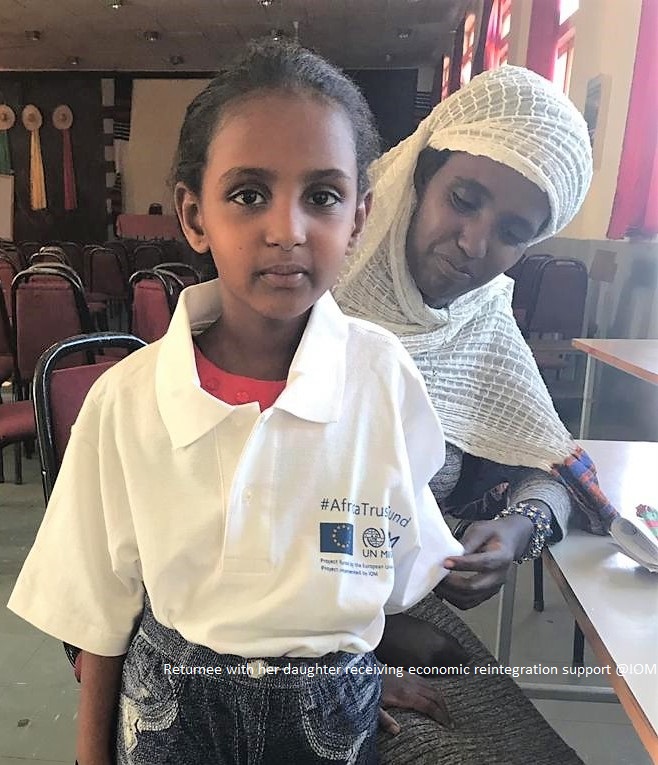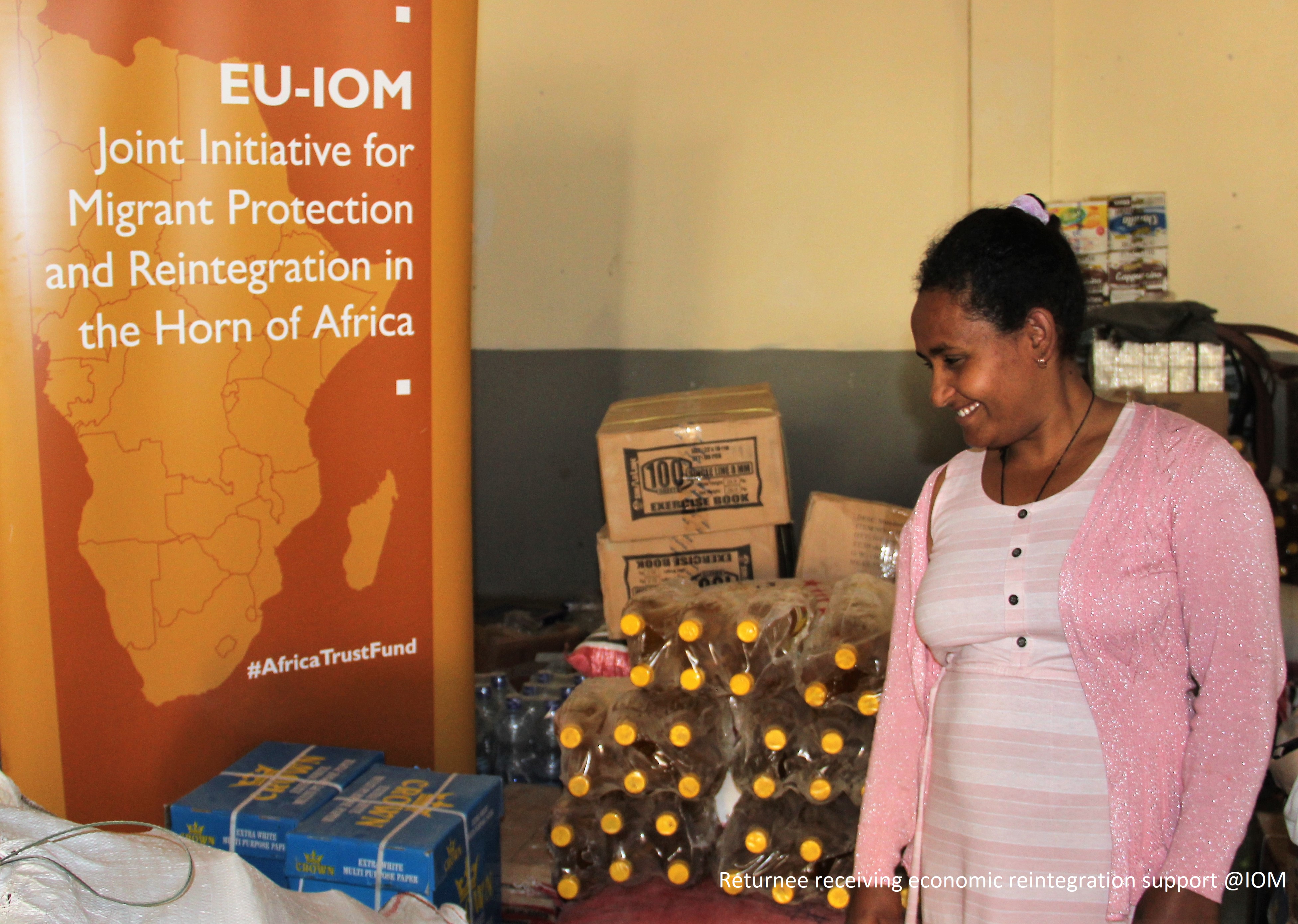Starting Afresh: Two Ethiopian Women Talk About The Decision To Leave Sudan, With a Child
All irregular migrants risk abuse, arrest and exploitation as they cross national borders in the hope of finding safety and opportunity. But women are even more at risk. Take Ayda and Tigist, two young Ethiopians whose stories are connected by the hardships endured. Having survived, and now with children to look after, both women struggle to start afresh and regain their dignity.
Ayda’s story
 Ayda* was born in Tehuldere woreda, South Wollo Zone, one of 10 zones in the Amhara Region of Ethiopia. She left Addis Ababa, where she was working as a housemaid, with the intention of going to Libya via Sudan. She was introduced to a broker, whom she paid 20,000ETB (USD690). To assist with the fee, her mother had sold a cow, with the rest coming from Ayda’s own savings.
Ayda* was born in Tehuldere woreda, South Wollo Zone, one of 10 zones in the Amhara Region of Ethiopia. She left Addis Ababa, where she was working as a housemaid, with the intention of going to Libya via Sudan. She was introduced to a broker, whom she paid 20,000ETB (USD690). To assist with the fee, her mother had sold a cow, with the rest coming from Ayda’s own savings.
“The road was rough, we had to walk during the night, to reach Metema, the town bordering Sudan, before finally reaching Khartoum.” Once there, luck was not on her side. Ayda said the broker left her, along with the others in the group, and disappeared. To make ends meet Ayda had no choice but to get a job through another broker, who claimed Ayda’s monthly salary from the employer by pretending to be her brother. “I worked for long time without a salary until I discovered that the broker was claiming it.”
Ayda met a man and got married in Sudan, hoping that they would make a life together. However, when she got pregnant, he left for Libya. This meant she had to work even harder to fend for herself and the baby.
“I had to start working as a housemaid to feed myself and my daughter. Sometimes I would only work for food and get no money. It was not easy,” Ayda says.
After five years in Sudan, Ayda heard about the International Organization for Migration (IOM)’s work in helping migrants seeking to return to Ethiopia. Through the EU-IOM Joint Initiative for Migration Protection and Reintegration (The Joint Initiative), IOM helped her obtain an identification card from the Ethiopian Embassy and also arranged for her return to Ethiopia.
“Upon my return to Ethiopia, I didn’t want to go back to my family, so I stayed in Mekele, (an administrative city nearly 450 km from her hometown). I didn’t want to go there (home) because I had no money. I was ashamed and didn’t want them to see me like that,” says Ayda, who is now living in Kombolcha, Amhara region, with her daughter.
The Joint Initiative has paid her house rent and her daughter’s school fee. “I now make injera (an Ethiopian staple food) and wash clothes to support myself and my daughter.”
Ayda gets very emotional when asked if she has ever considered going back to Sudan. “I got nothing from being an irregular migrant, I don’t want go back. I would have been better off living in my own country if I laboured as much as I did in Sudan.”
Tigist’s story
 Financial reasons forced Tigist* to heed her friends’ advice of securing a job in Sudan.
Financial reasons forced Tigist* to heed her friends’ advice of securing a job in Sudan.
“I used to live with my mother before I left Ethiopia,” she says. “I left my country to get a better income and change my life.”
In Sudan, she was promptly hired as a housemaid. However, it all changed when her employer refused to pay the promised wage.
Around that time, Tigist married an Ethiopian man and had a baby boy. However, they soon divorced largely due to differences on whether to stay together in Sudan or go back to Ethiopia.
Tigist set off for Ethiopia. But picking up where she left off in her home town was very difficult. She had to deal with harsh comments like, “she was supposed to come back with money not with a baby”.
Somehow, she mustered the courage to face up to the challenge. Having assisted her to return to Ethiopia, the Joint Initiative is also supporting Tigist to set up a retail shop.
In addition, IOM is taking care of her son’s medical treatment as he had to undergo heart surgery. “Of all support I have received, the medical support for my son made the most impact in my life,” Tigist says.
*Not a real name
